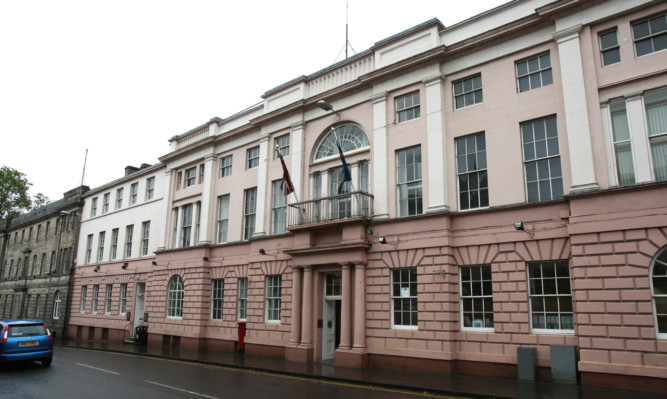A retired sheriff believes that future generations will be “aghast” at the Scottish Government’s decision to close Cupar Sheriff Court.
In an exclusive interview with The Courier, George Evans, who presided over the Cupar court for 12 years, said the decision was “bad business, hastily done and untested by proper parliamentary scrutiny and debate”.
Mr Evans, who lives in Ceres, spoke out following widespread condemnation of the decision to close Cupar as part of a plan to cut 10 sheriff courts and 16 justice of the peace courts.
The Scottish Court Service has stated that its recommendation was based on the “most comprehensive consultation ever undertaken on court services” as it battles to save millions of pounds.
However, fears have been expressed about access to local justice, the economic impact on Cupar as well as the ability of courts like Dundee to cope with the extra workload. The predicted cost savings from closing Cupar Sheriff Court have also been challenged.
Mr Evans said: “Remember what happened to railways under Dr Beeching? In both cases, Victorian institutions have been attacked as needing ‘modernisation’, i.e. removal, and their absence becomes a matter of deep regret to future generations.”
“That, in my view, is what is likely to happen once these, and all the other closures in the pipeline, have come to pass. You can re-open a railway line as a heritage line, but you cannot do the same with your court. It will be gone for good,” Mr Evans said.
“Lord Gill himself has taken the view that ‘people need to be able to access justice in their local courts’. He has highlighted the problem of ‘sheriff-shopping’ and the need to ‘ensure consistent decision-making’.
“The very type of courts now being taken out of our system were able to provide those desirable qualities, ie access to justice locally and one local sheriff providing consistency throughout a case in spades.
“Their removal, as others have said, will lead to more accused and witnesses not turning up and therefore more adjournments and the remaining courts not having the facilities to cope with the additional business.
“It was said that ‘many smaller courts are not fit for purpose and are under-used’ or ‘the level of business that is going through these courts is very, very small.’ That was not my experience, having spent an equal amount of time as a sheriff in both Glasgow and Cupar over a period of 26 years.
“The demands of both jobs were different, but equally taxing. Even if it were true, surely sufficient steps could have been taken to increase the business in such courts.
“The territorial boundaries of Cupar Sheriff Court could have been altered to take in the busier centres of Methil and Buckhaven, for example, and thus alleviate the pressures on Kirkcaldy Sheriff Court.
“In my time in Cupar, the fiscal in Kirkcaldy made a song and dance about using Cupar for the hearing of jury trials that would otherwise have been heard in Kirkcaldy. We changed our timetable to allow for this. What happened? Nothing. Not a single jury trial from Kirkcaldy came our way.
“A great many of those now for the chop could, with a little more thought and ingenuity, have been spared to the benefit of our local communities throughout Scotland.
“If nothing else they could have been retained to deal with purely summary business by the new summary sheriff and all other more complicated, serious and valuable cases being transferred to the nearest bigger court.”
